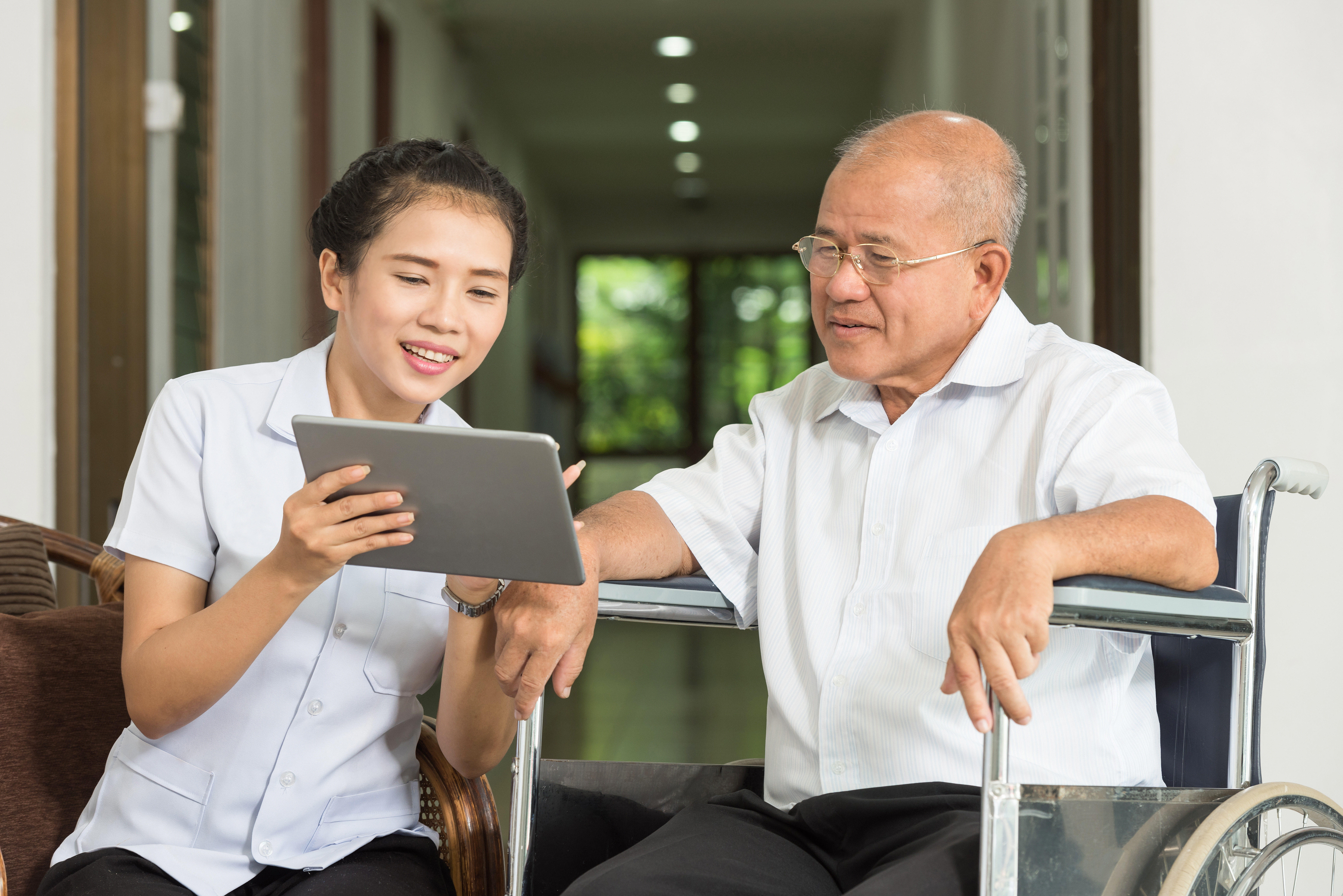This blog post was authored by Gabe Rijpma, Senior Director, Health & Social Services, Microsoft Asia
 When I think of the future of healthcare, I think of my own family. In a decade’s time my father will be 85 and require some support – probably some of it from my mother, who is a few years younger.
When I think of the future of healthcare, I think of my own family. In a decade’s time my father will be 85 and require some support – probably some of it from my mother, who is a few years younger.
What kind of care would I like my family to receive? And what kind of life should older people be able to live? As society ages, this topic is becoming more pertinent for policy makers across the world. I believe there are four key priorities for supporting an ageing demographic.
The four key pillars of ageing care
The first priority is independence. How do people remain independent as long as possible, living their lives in their own homes with the people and the things they love – their family, their friends, perhaps their garden or their belongings?
The second is about connection. As countries have become more globalised, many families have their children and diaspora all over the world. It’s important that older people can remain connected in a meaningful and loving way, whether their children are 20km away or 2,000km away.
The third thing that is incredibly important is the ability to be in an environment where people can feel involved and active. Some people suffer from mobility issues or memory problems, but they do not want to feel that they are in God’s waiting room. They should be in an environment where they can do things to the best of their capacity: be it community events, cooking, art – a rich list of activities that allow people to be busy, interested and do the things they love.
None of those things necessarily have a technology component to them. But they are reliant on a fourth priority – the productivity of the healthcare system. In many organisations, only 35% of nurses’ time is spent on patient-facing activities. Anything that can allow them to spend more time with patients is going to be critical. Today, the nursing industry is too manual and process-oriented; it must reform to cope with the pressures to come.
Improving independence
By 2026, independence can be significantly improved for elderly people. An intelligent home that will sense and respond to their environment is a good starting point. For example, a house could monitor the elderly for falls, or track their food intake and consumption using sensors in the fridge. We’ll probably see toilets installed in people’s homes with laboratory kits in them that take a stream of your urine and provide results to the laboratory remotely. These kinds of sensors will allow people to be supported in their own homes, with help on hand when they need it.
Robotics will also make a big difference. As you get older, it becomes harder to perform basic tasks – especially if you have mobility issues or problems with your memory. The cost of robotics will rapidly drop over the next decade, and could help with everyday tasks such as stabilising someone in the shower. Japan is leading the way on this.
Autonomous systems will also play their part. As we get older, we’re no longer able to drive a vehicle but may want to go to the shops. Autonomous vehicles will be very exciting and beneficial to the elderly than to the youth, as it empowers the elderly the freedom to move about.
Keeping connected
Technology can enable families to stay better connected. There is no replacement for direct contact, but having lived away from my own parents – my children’s grandparents – for many years, the value of remaining connected is profound.
The elderly are not as prolific on social media as their younger relatives, but many of them still do use it to remain connected to their communities of friends and interests. And simple technologies like Skype videoconferencing are vital in connecting families.
But what is going to enable the elderly to live more active lives? It depends on the way that we design our communities and living spaces. We need to rethink our streets to make them friendlier to the old. We have to design our cities and living spaces to keep people interacted and stimulated, providing opportunities to meet other people.
Increasing productivity
Achieving this requires a far more productive, and integrated, healthcare system than we have today. Productivity is the biggest challenge to aged care. Humans need humans to look after them, so we need to ensure that nurses focus on high value tasks.
Productivity is the biggest challenge to aged care today
The emphasis must shift away from administration. Nurses must change the way they work: by and large, they still work very manually, with a great deal of paper and process. When everything is captured manually, one cannot access data easily to help them understand a patient’s needs. Moreover, they lack the ability to work on the move, which will mean added time and hampers productivity.
The biggest policy enabler will therefore be data sharing rules. This policy area needs to change immediately and not hold up the delivery of integrated care. It is often the view that patient data is private, but this provides many excuses not to share with other healthcare providers. Most people already assume their pharmacist shares with their doctor.
Once that data can be shared, it can be used to provide personalized medicine, and combined with sensors and other outputs. Predictive analytics could even spot the likelihood of someone having a fall before it happens, alerting their loved ones to the increased risks.
The fundamental technology enabler here is cloud. It’s the delivery mechanism for all this other technology to work. Traditionally, healthcare systems have been built in a vacuum, but cloud can bring them together, changing workflows and improving productivity.
When I look ahead to 2026, it feels a long way away. But we need to start making changes immediately to improve care for the elderly. What could be more important than family?
Microsoft is a sponsor in the year’s World Cities Summit 2016 which takes place on July 10–14 in Singapore. Discover how Microsoft and its partners are accelerating transformation at the conference here.







